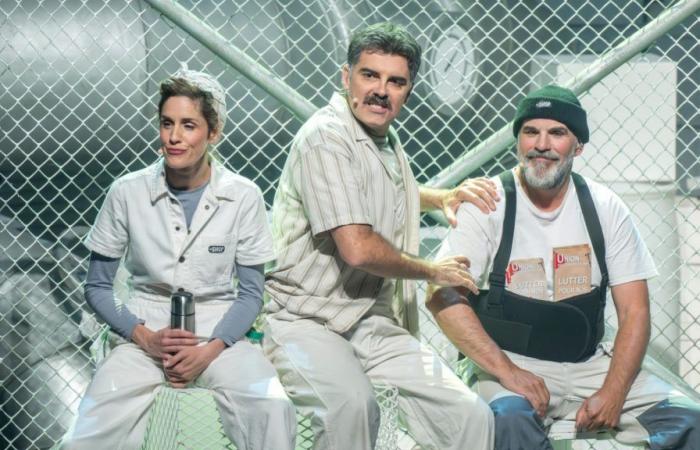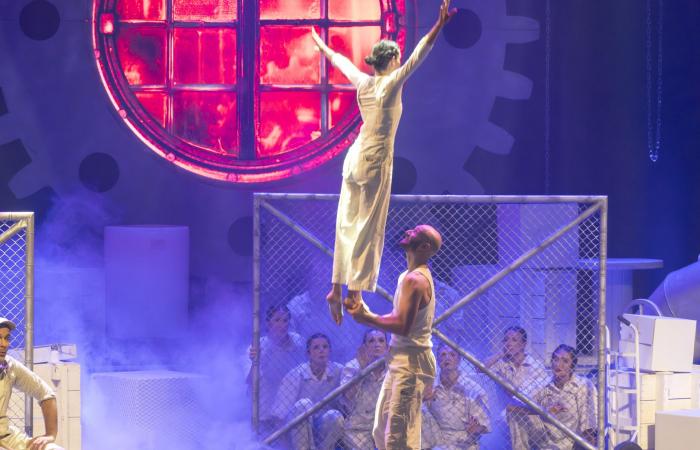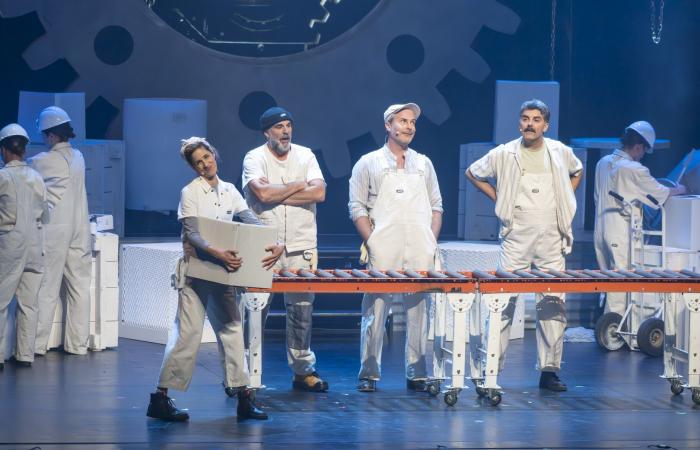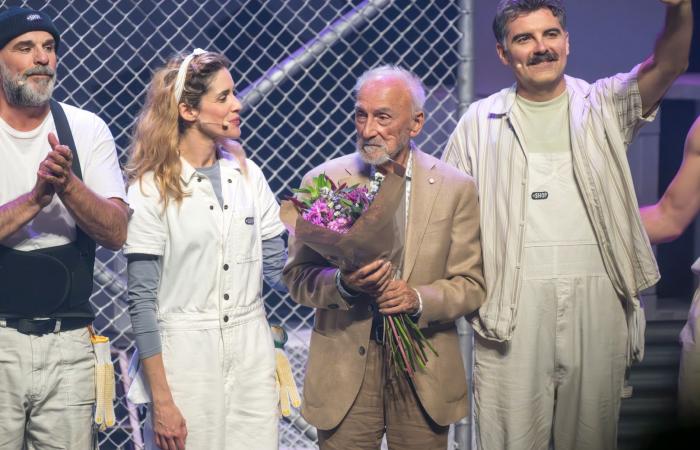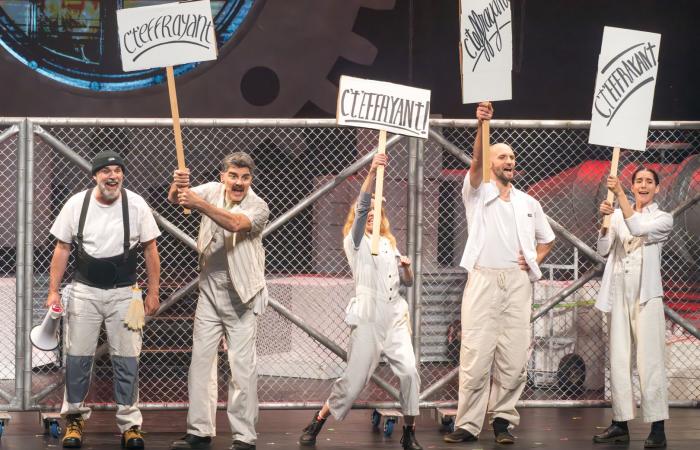It is more than time, the time to celebrate with dignity the immutable achievements of the father of our comedians, the great Deschamps. He is 89 years old. We must thank him while his laughter, as sonorous as it is candid, still rings in our ears, his unique chuckles, just for him, recognizable among thousands.
More than ever, we are collectively aware of its value, of this comic-philosophical-critical treasure of the ordinary and its contemporaries as only Quebec has been able to create, or almost. It seems that there is currently a pressing need, we realize that Deschamps is no more immortal than Ferland or anyone else, the plans for tributes accumulate and intersect: the collection Really all of Deschamps… in full has just been published in bookstores, a television series is being prepared under the sponsorship of Alexis Durand-Brault (reported by the daily La Presse last year), Philippe-Audrey Larrue-St-Jacques offers his tip of the hat in the podcast The words of Yvon Deschampson OHdio, and other rumors of shows in the making are whispered here and there. The Deschamps of the good old days would probably have teased us with his mocking smile that it was time for us to wake up.
And there is this fresco, Yvon Deschamps talks about the shopwhich was revealed at the Théâtre Maisonneuve, in Montreal. Which perhaps does not constitute the “tribute of tributes”, but which proves incontestably worthy of the greatness of its subject. A magnificent production, inventive, respectful, articulated around the raw work of Yvon Deschamps, his striking texts. On paper, Yvon Deschamps says the shop left us fearing the worst: everything was presented as an amalgamation of game, song, dance, circus, in a “retrofuturist” universe (the latter ultimately not being so palpable). But, what was this disparate object going to eat in winter?, we feared.
However, this was to underestimate the vision of designer and director Jean-François Blais (Live from the universe, La VoixComediHa galas!) and, undoubtedly also, his passion for the legacy of Deschamps, that to doubt like this. The play he offers us illuminates the master’s monologues in a brilliant way by supporting them with (varied) music, (careful) choreography and (successful) acrobatics. We never get tired of hearing them again, these Yvon Deschamps numbers, these Unions, what does ossa give? and others Happinessbut they are highlighted here differently and superbly… and make us realize that very little has changed since the time when Deschamps still wielded his pen.
On stage, a factory setting. That of the shop. White blocks and barrels, huge pieces of machinery, a fence, which will disappear, then return. And the workers, all in white too. There is the rebel (David Savard), the dreamer (Elizabeth Duperré), the sheep (Stéphane Archambault), the unionist (Sylvain Marcel) and the foreman (David-Alexandre Després, in a silent role). Over the next two and a half hours, everyone will have their Deschamps score to recite, according to the personality of their character, in a skilful distribution of words. The workers recount their splendors and their miseries. The monologues here respond to each other and sometimes become dialogues. Around the core of protagonists move the other workers, aka eight dancers and two acrobats, and three musicians to boot.
Yvon Deschamps himself is not in the show… Or, rather, yes. He appears in his inset screen, a little higher than the action, in small bits of narration recently filmed, where he still stirs the cage of his observations and the gentle irony that is his, thus linking the scenes between them. Fortunately, the process was not abused; it’s not a one-man-show of Yvon Deschamps as such, after all, but we thus have an idea of what the man would say if he had to go to the microphone of the Brothel in 2024.
We also found a way to insert references to the world of Charlie Chaplin, one of Deschamps’ idols, especially at the beginning, with instructions addressed to the spectators in black and white: “Applause!”; “Are you in good shape?”; “Stronger than that!”

The first vignette is about hard work. That ofA job steady floor a good boss and Unions, what does ossa give?where we rejoice in the 54-hour working week and a single week of vacation per year, without physical security, without job security. The artists move in military movements in a union – precisely! – studied gestures. Then there will be The girls, The boss’s daughter’s wedding, Money, Paternity, Dad, The boss is dead, Lock Out and the inevitable Happiness closing. With all these memorable parts of Yvon Deschamps’ sentences which have imbued our collective memory.
The actors alone, all excellent, constitute an immense strength of Yvon Deschamps tells the shop. David Savard breathes an imposing confidence into his rebellious seducer who questions consent in The girls (topical, Deschamps, did you say?) Special mention to Elizabeth Duperré, whose voice magnifies all the segments a little. As a great contemplative who dreams of a sumptuous wedding like The Wedding of the Boss’s Daughter, the actress of Perfect moments andBefore the crash combines vulnerability and character. She is without a doubt the revelation of the show.
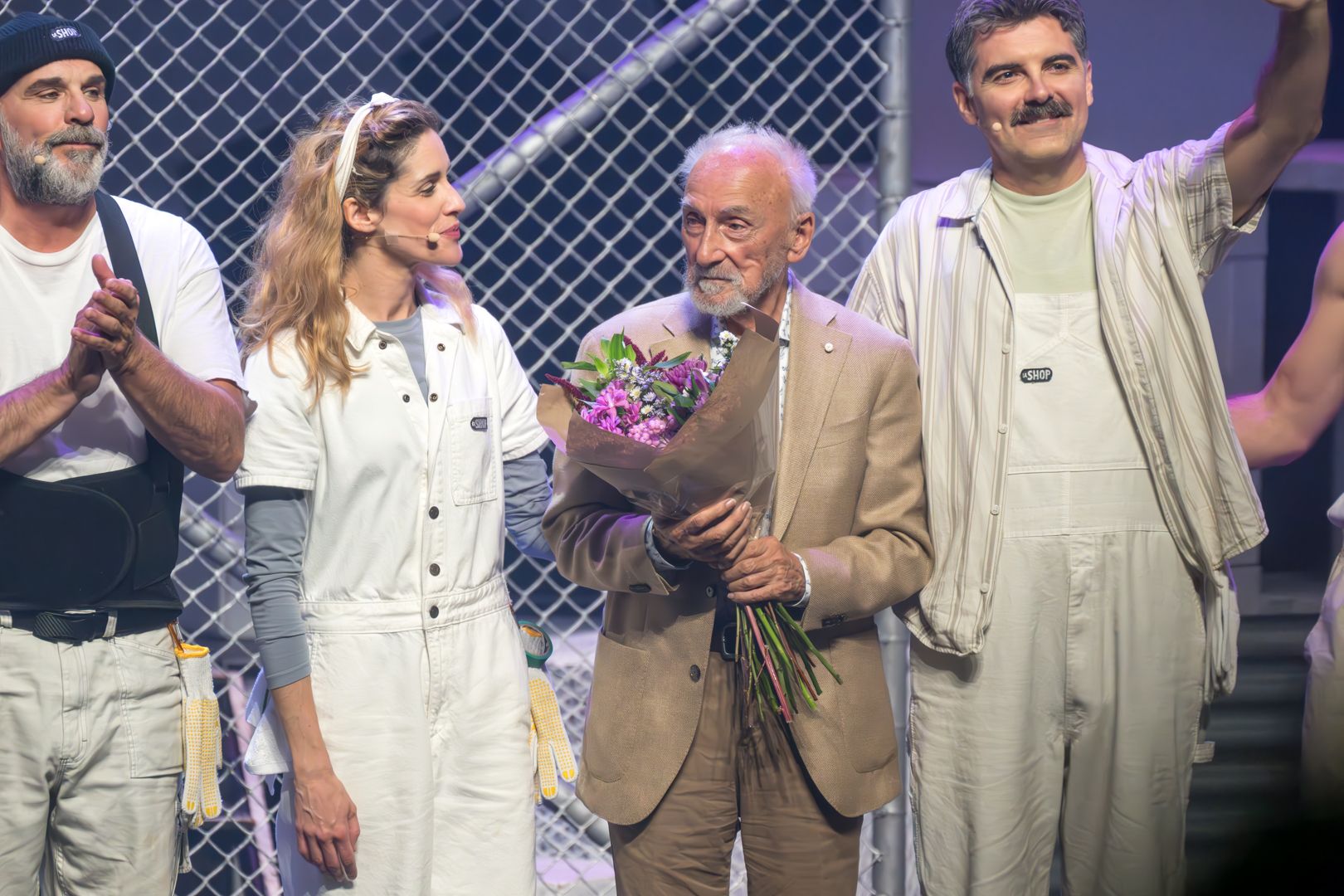
In each parentheses, one or more song(s). Not necessarily from Deschamps. Yvon Deschamps says the shop is also, on a small scale, a flower to all our great songwriters. To workof Pagliaro, and Like a million peopleby Dubois, accompany the flow In my yard. There will also be Family life (Clémence Desrochers), At eye level (Vincent Vallières), The cursed machine (Pierre Flynn)… Romantic circus prowess from hand to hand on Under the chimneysby Richard Séguin, with, again, the tone of Duperré to enhance everything, is moving. The rereading of Cash Cityfrom De Larochellière’s repertoire, sounds a little dubious behind the diatribe on money, but most of the arrangements are harmonious. And we also hear, of course, the We are happy, The buttocks, Papa, Alone, Boom Boom, Happiness et Let’s love each otherall signed or co-signed Deschamps.

Yvon Deschamps says the shop embodies in short the illustrious decree of Yvon Deschamps of yesteryear (which of course emerges quickly in the sequence): “We don’t want the sawoère, we want the woère!”. Under the orders of Jean-François Blais, the little world of Yvon Deschamps takes shape in flesh and blood, reinvented, but faithful to the original. It’s absolutely beautiful. And we surprise ourselves by realizing, while listening to these complaints from a cursed machine which would have swallowed up the employees, while receiving the authoritarians: “Moé and my sister, we want industrialization!”, today, right now where artificial intelligence makes us fear the worst, that Yvon Deschamps’ observations were truly, cruelly, and will remain, timeless.
The show Yvon Deschamps tells the shop is currently on tour.
Additional ones have already been announced in several cities.
Visit yvondeschamps.com for more information!

